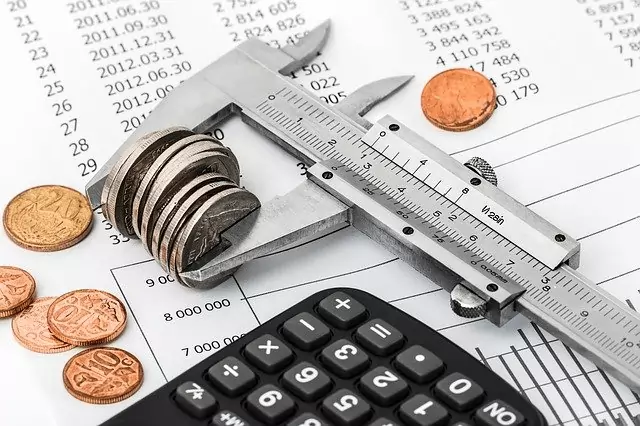The Best Way to Save Money: Tips You'll Love
It's no secret that money is tight for a lot of people these days. It seems like every time you turn around, there's another expense to take into account, making it almost "impossible" to save money. But don't worry – we're here to help! In this article, we will discuss some of the best way to save money, and even some tips you'll love!
In this article, we'll cover everything from simple tips that anyone can use, to more creative strategies for those who want to save even more. So, regardless of your savings goals, whether you're looking to save a little or a lot, read on for our top tips!

Determine your financial priorities
Having a plan that will make you spend your income more effectively is probably a big factor. For instance, the sooner the car is replaced, the cheaper the better. However, be aware of a longer-term goal. Getting better at determining your savings goals can be helpful to your overall financial strategy.
Start with the basics
One of the best ways to save money is to simply become more mindful of your spending. Track where you are spending your money for a month, and then look for ways to redirect your resources.
Create an Emergency Fund
A key part of saving money is to have an emergency fund that you can rely on in case something unexpected comes up. Try to save enough money to cover at least three months of living expenses.
Make sure you have enough money to cover at least three months of living expenses, you will be able to cover unexpected costs without having to dip into your savings or take on debt.
To start building your emergency savings, start by setting aside a small amount of money each month. You can also add to your fund by setting aside any extra money you have, such as your tax refund or bonuses from work.
Once you have built up a sufficient balance, you'll be able to relax knowing that you have a cushion to fall back on if needed.
Remember that your emergency fund is for real emergencies and not things that you should or could plan in advance. Therefore, keep it in a separate savings account at your preferred financial institution.
Invest in Yourself
One of the best ways to spend money is to invest in yourself. Consider taking a class or investing in a business that will help you earn more money down the road.
Investing in yourself will help you advance in your career, which will create new opportunities to generate more income.

Get out of debt
Before you start saving, you will most certainly wish to settle all the debts you are owing. The longer you wait to repay your debts the bigger the problem is.
On the other hand, the sooner you pay your debts, the more you save by avoiding paying interest rates higher than the interest you can get for your money in a savings account, for example.
Check your Credit Report
Your credit report is a record of your credit history and it's important to check it regularly to make sure everything is accurate. If you see anything on your report that doesn't look right, be sure to dispute it.
Your report will also give you a clear understanding of which debts you still need to pay off.
Start Saving Money
Start saving can be tough, but there are plenty of ways to do it. You just have to be creative and willing to put in the effort. Here are a few of the best ways to save money:
Establish a Savings Plan
Your savings journey doesn't have to be hard. But, without a savings plan, it's difficult to manage and save your money. If you, at the beginning of your savings journey, establish a savings plan, you can make sure that your money is going where you want it to.
A savings plan will give you a specific savings goal to work towards. This can help you stay motivated to keep saving. It can also help you figure out the best way to use your money.
Find ways to cut spending
If saving doesn't make sense at the beginning, it may be necessary to reduce expenses. Cutting out unnecessary expenses is probably the best way to find extra cash. Find nonessential things like entertainment and dining out.
Find some ways you can lower monthly costs like car insurance and cell phone monthly bills. Other strategies for reducing daily costs include:
Wait before you buy
Those that want monetary value for something should wait some time. Eventually, you'll know that the thing is just something you want.
Try the 30-day rule
If you're considering buying something that isn't a necessity, wait 30 days before making the purchase. This will give you time to really think about whether or not you need the item, and in many cases, you'll find that you don't!
Prepare a grocery budget
You can easily save thousands of dollars a year by following the right grocery budget. Cutting the cost of your grocery shopping by just 10% could save you more than $1,000 a year.
A good grocery budget is essential to saving money and eating healthy. The key? Planning ahead so you don't find yourself in urgent need of food at some point during this week's or month’s shopping trip!
Examine the cost of eating out vs. cooking at home.
Plan a meal for yourself and search nearby restaurants for nighttime deals that you can treat yourself to.

Cut back on your utility bills
A good way to save money, time, and energy costs is by cutting your monthly utility bills. If you could reduce their cost, you'd save a good deal of money.
Change Energy Suppliers. If you choose to pay at least the most cheap prices you may be able to reduce the costs of your electric bill by a few thousand.
Cut your TV Cable!
Streaming services are much cheaper than having a TV cable. You may be able to get all the channels you desire by paying for one of these services.
Netflix, Hulu, and Amazon Video are some examples of streaming services that offer great content for a fraction of the price.
Switch the LED bulb to a fluorescent lamp bulb.
The average family of four uses around 400 watts in an all-around home. With LED bulbs, you can cut your electricity bill by up to 75%! sine LED bulbs are 75–80% LED bulbs are 75–85% more energy-efficient than standard lightbulbs, and they are 10 times more durable.
Smart thermostats.
If you have the opportunity to upgrade your home with a new thermostat, make it a smart one. Smart thermostats are programmable and can save you up to 30% on utility monthly bills.
Solar power your home.
Solar panels are an expensive investment, but they will save you money in the long run by decreasing your dependence on the grid. Solar panels can save the average family $70 per month on their electric bill.
Water-saving showerheads and faucets.
If you live in a drought-prone area or are looking to save water, install water-saving showerheads and faucets. These fixtures can save you up to 50% on your water bill.
Revise and change your cell phone plan.
You may be able to save on your phone bill by switching to a cheaper cell phone plan. There are many affordable cell phone plans that offer unlimited talk and text, with a decent amount of data.
Check your insurance policies.
Saving on insurance is easier than you think. You can save on your car insurance by shopping around for the best rates, raising your deductible, and bundling your policies. You can also save on homeowners insurance by doing things like installing security devices and smoke detectors.
Sell your unused items
You can easily make extra cash and save toward your vacation by checking out your unused things and selling them on the internet. Not only will you reduce toxins and clutter from your house, but you'll be getting some additional earnings that you can spend on your vacations and savings!

Try to fix things yourself
It's incredibly important when you have a knack for fixing something broken by yourself. Thanks to YouTube or the Internet in general it's now possible to learn about almost everything. If you're fixing a leaky pipe or zippered jeans yourself you'll always find the solution cheaper than having a professional do it or replace it altogether, if possible.
Take up a side hustle
If you want to make your monthly savings more affordable you should consider doing side jobs. It might be working some evening hours in bars or restaurants at the end of your office job, getting freelance jobs in a virtual environment, or maybe even pet sitting.
When you are able to afford it, this can really help you save money on the side hustle. Keep your mind on burnout. It's much more important for you to keep yourself healthy than make an effort to save!
Buy your car at the end of a financial quarter
It's the most convenient time to buy a car in March, June, September, or December. What are the reasons for this? Most dealerships have sales targets they need to achieve in order to earn money.
Although targets are set every week and month, huge bonuses are distributed quarterly. You might get a much more competitive price in the first two months as dealers aim to reach their quarterly sales target.
Do your research before you buy a car
Before you buy a car, do your research! Compare prices, read reviews, and test drive the cars you're interested in. This will help you make an informed decision and get the best deal possible.
Credit Card debt: Put a spending limit on your card
Tell me the easiest way to save time? Limit the amount you can buy from your credit card. It prevents you to use too much and it encourages you to check daily expenditures. Most banks provide this service to customers.
Designate a no-spend day once a month
You should nominate the day every month that your fixed expenses will be completely free of charge. The solution may be making your own meal using your own ingredients and socializing in a park or home. Once you have become comfortable with that, you can increase it and maybe one day a week to increase the monthly savings.
Automate your bills
It could also help you automate bill payments. Company fees are often charged to late pay customers, which means if they pay them in time you will avoid any extra charges.
Create a designated savings account
You should divide your daily expenditures from your planned savings for a quick money-saving strategy. This requires creating an individual savings account. It minimizes your risks in investing in your savings account as if it were a necessity for your daily needs. Instead, you will have to keep your money in line with your daily budget and keep it secure from temptations!
Think outside the traditional savings account
When it comes to saving money, there are a lot of options available – you just need to get creative! If you're looking for something with a higher interest rate than a traditional savings account, consider even investing in stocks or mutual funds.
Pick the right tools
There exist many account options that are good for short or long-term goals. There is no need for a single choice. Look at each option carefully to make an accurate choice for your goals.
Long-term goals
Remember that a securities policy does NOT guarantee a loan to anyone, and it will never be refunded. This is subject to investment and may result in your potential loss if your capital is not paid.
Short-term goals
If the cash needs to go fast, make sure you have your money in an FDIC-insured bank account.
Set savings goals
It can be very easy to make some money by making some goals. Start imagining the potential savings you could be making in your budget if you have less than three months left over. Calculate the amount of money required. Common short-term goals: Investing in the immediate future in home remodeling projects, child education, or retirement.
Quick tip
Set a short-term goal to achieve something that is fun that is well within the monthly budget, which can include an iPhone or holiday gift. Reaching smaller goals can increase your psychological health and increase your rewards for saving.
Learn to budget and understand your finances
We recommend that you learn to budget. When it comes to budget, you have a good idea. What's the point of starting? If you plan to save money in a month you will need to understand how to handle it. This means that it helps understand all your revenue sources, including debt repayment payments, monthly payments, and saved contributions. Tell me the best budgeting ideas to save time: Keep track of everything in one day. All the money you earn and spend.
An excellent option for personal budgeting is the 50/30/20 rule. Rule 50/30/20 comes out as part of the book The Ultimate Lifetime Money Plan by US Senator Elizabeth Warren.
In this system, you would budget 50% of your monthly income for essentials like food and housing, 30% for discretionary items like entertainment and travel, and 20% for savings or debt repayment.
Include saving in your budget
Once you know how many dollars it takes each month, then make a plan for it. Your Budget must display how much you pay compared with your income for the budgeting and budgeting process to avoid excess spending.
Always consider expenses that occur monthly but not weekly, namely maintenance. Incorporate savings categories into your budget and aim at saving a number you feel initially safe with. Plan to increase your savings gradually by 5% or 10% of your income.

Make saving automatic
If you find it difficult to save money on your own, consider using a service that will automatically transfer money from your checking account into your savings account. This can help you make saving money a habit.
Nowadays, all bank accounts allow you to transfer money between your accounts. You decide when and where you can put money in your different accounts, split your direct deposit or split your cash flow.
With online and mobile banking, customers are able to easily set up automated transfers from one account to another, making it easy to start saving money and work towards your financial future.
Watch your savings grow
Check out the monthly budget. It helps you maintain an individual savings program but will identify and fix problems immediately. Understanding the importance of saving can also help you to find new ways of saving.
Final Thoughts
By following these tips, you can be well on your way to saving money and getting your finances in order. Just remember to be patient and consistent, and you will reach your financial goals in no time!
Do you have any other saving tips that you would like to share? Let us know in the comments below!
